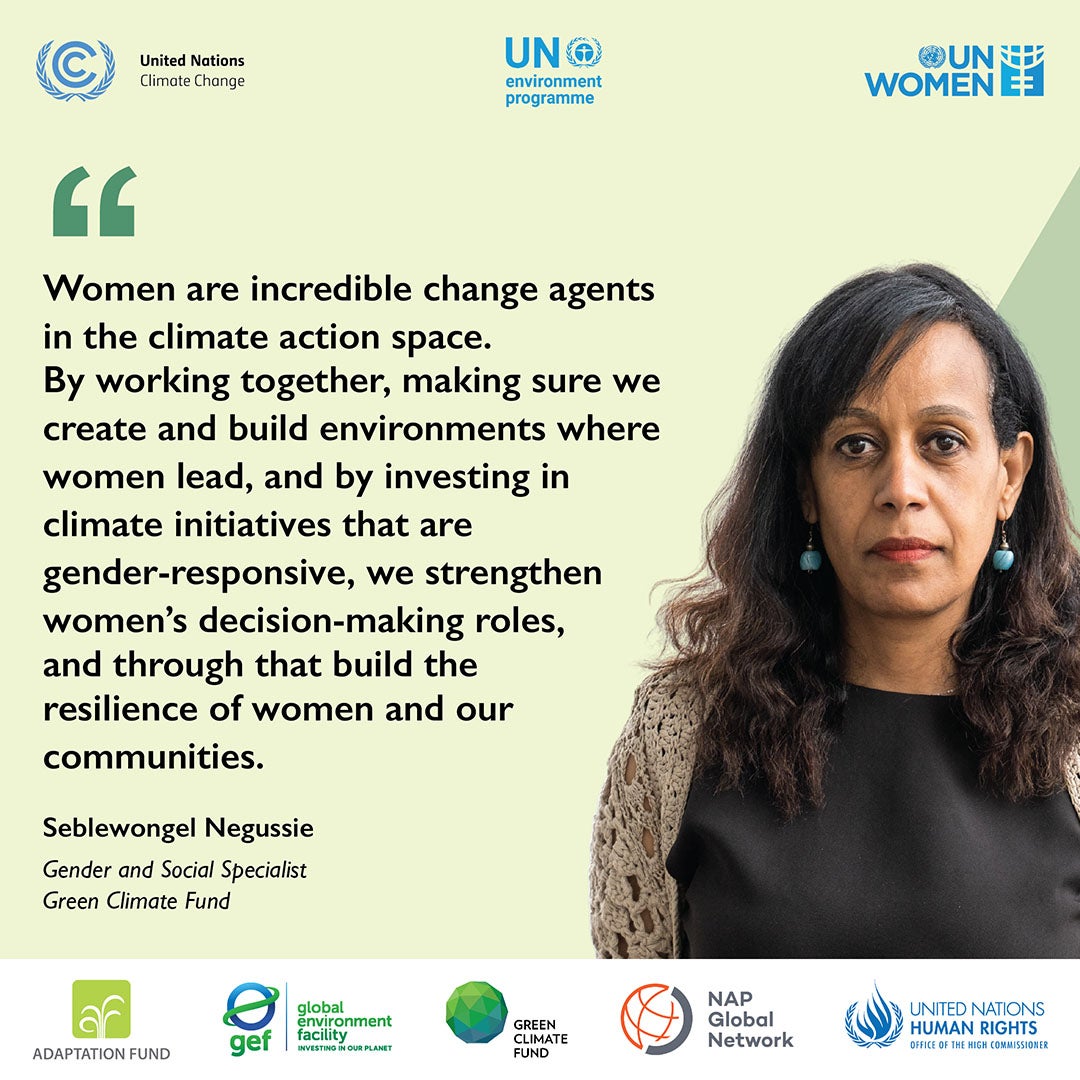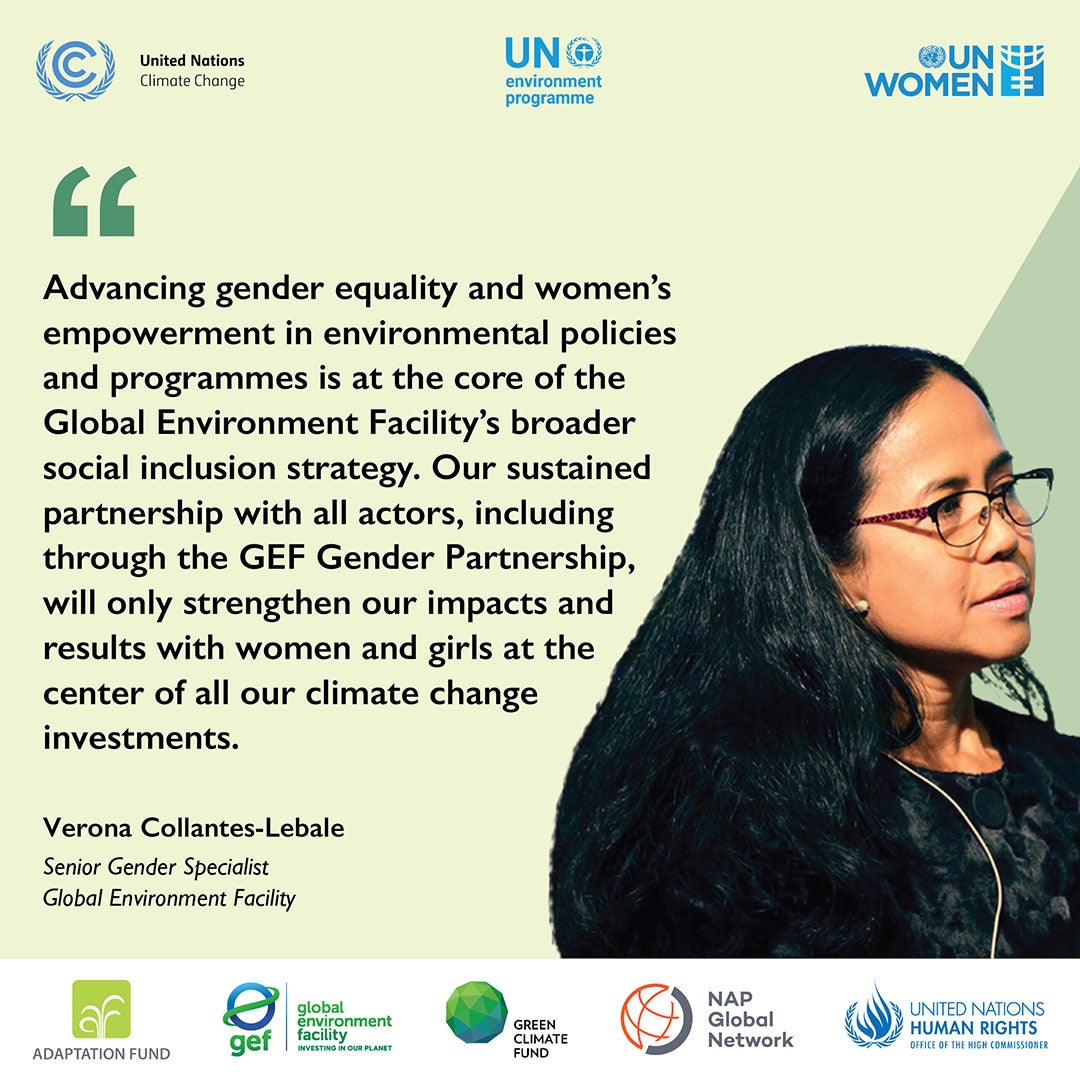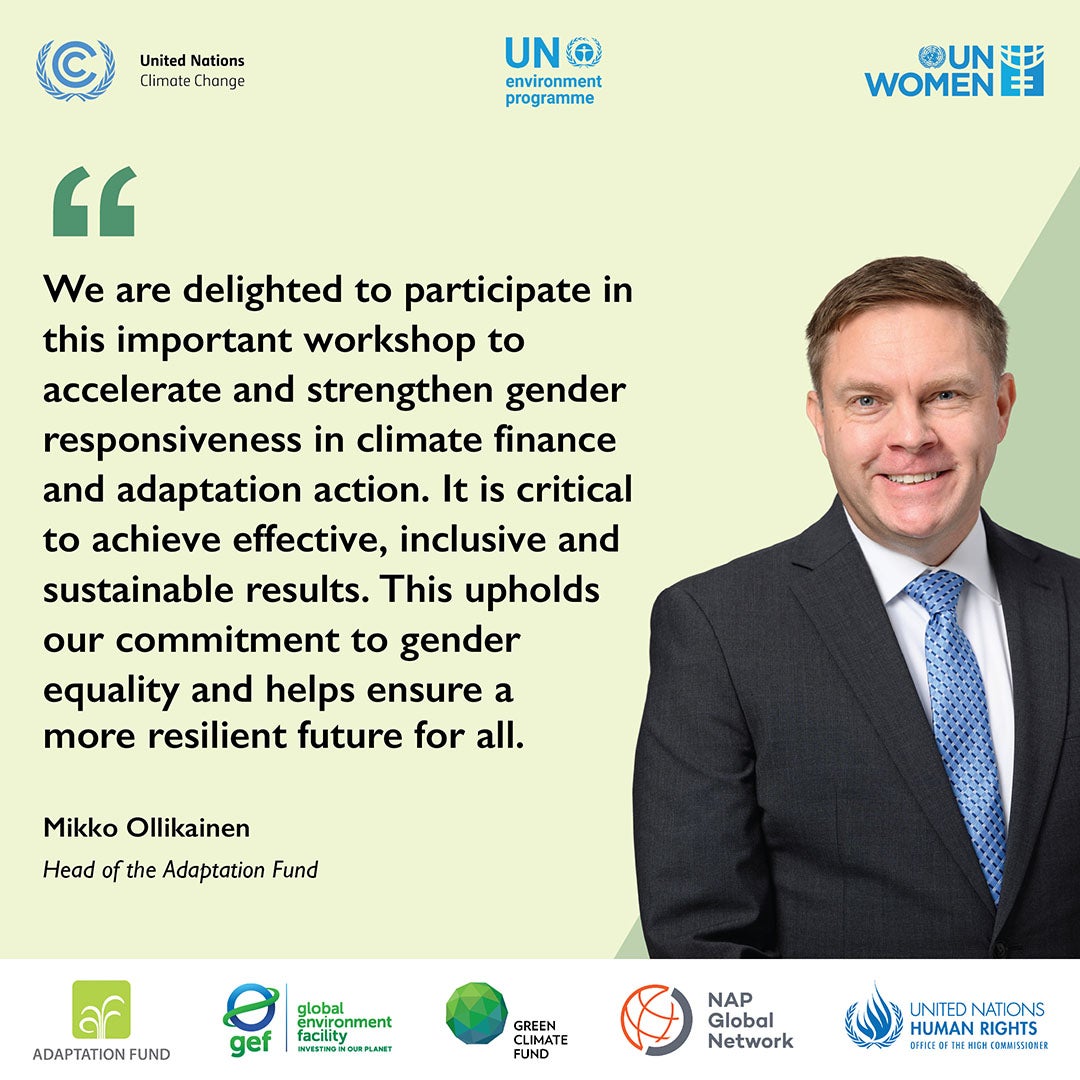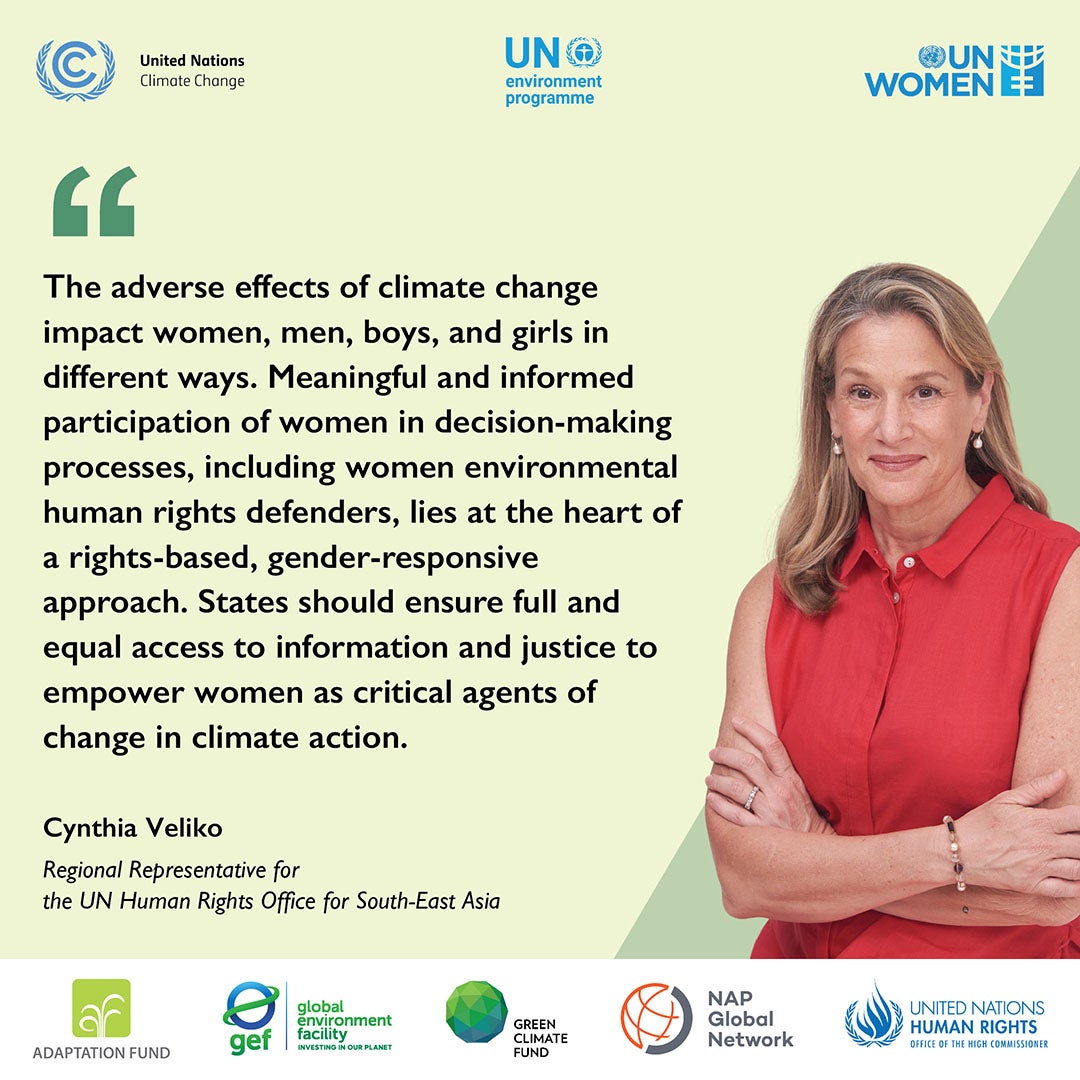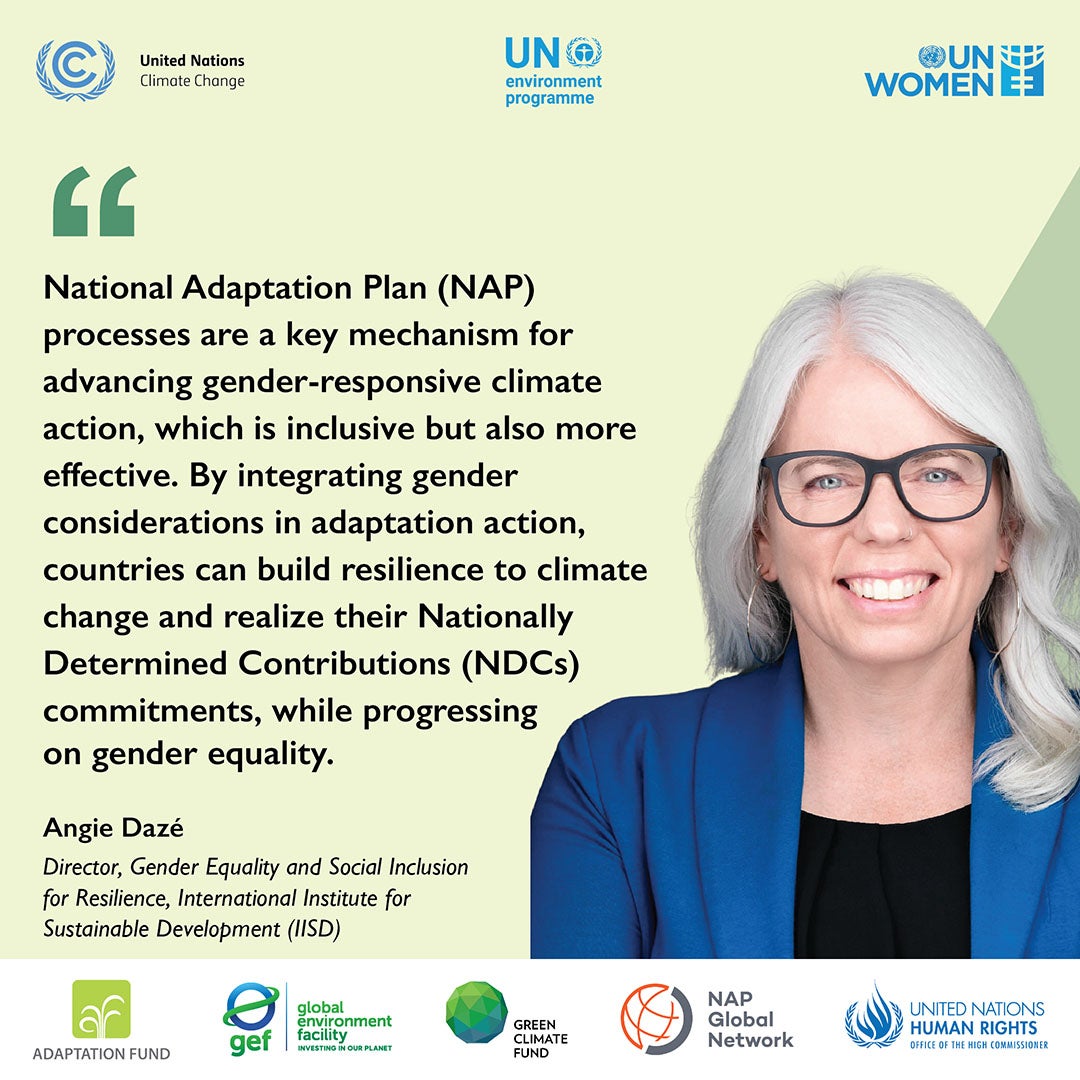English | 한국어
Seoul, Republic of Korea — Government representatives from 10 countries across Asia and the Pacific convened in Seoul for a three-day training workshop that aimed at supporting them in accelerating gender-responsive climate action and nationally determined contributions (NDC) implementation. The workshop was co-organized by UN Women, the UN Environment Programme (UNEP) and the UN Framework Convention on Climate Change (UNFCCC), with support from the Adaptation Fund, Global Environment Facility, Green Climate Fund, International Institute for Sustainable Development and UN Human Rights.
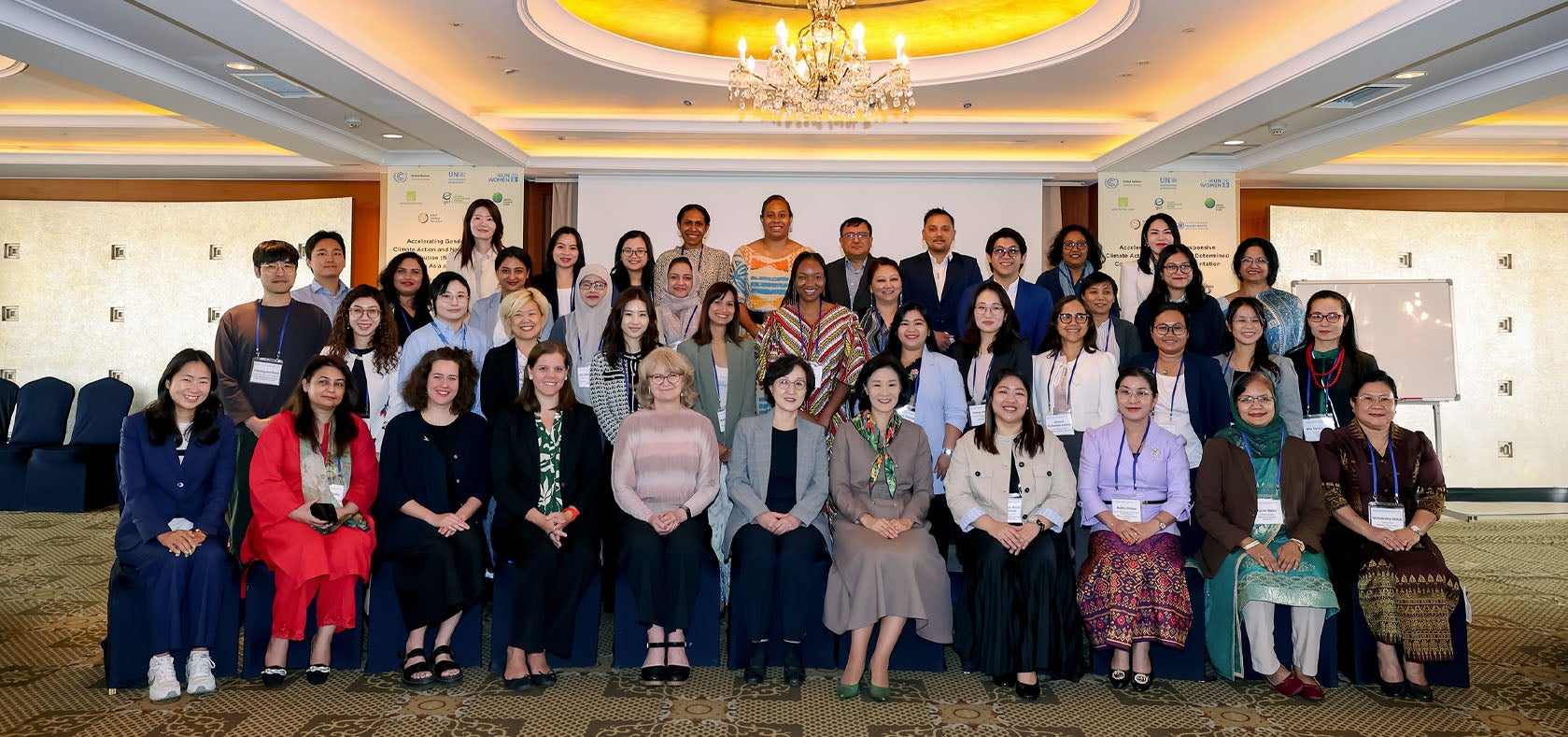
Government representatives from 10 countries across Asia and the Pacific, and delegations from UN Women, the UN Environment Programme, the UN Framework Convention on Climate Change, the Adaptation Fund, Global Environment Facility, Green Climate Fund, International Institute for Sustainable Development and UN Human Rights. Photo: UN Women/Kwanju Kim
NDCs are countries’ self-defined commitments to reduce national emissions and adapt to climate change impacts in alignment with the 2015 Paris Agreement on climate change. Recognizing that women are disproportionately affected by climate change, countries are increasingly integrating gender considerations in their climate commitments, including 37 out of 49 countries in the Asia-Pacific region.
Insights and learnings from the workshop will enable participants to better prepare to submit their new or updated NDCs in 2025, ensuring they address the specific needs and priorities of women in all their diversity and recognize them as agents of change and decision-makers crucial in driving climate action. It will also support them in integrating gender considerations into their National Adaptation Plans (NAPs) processes.
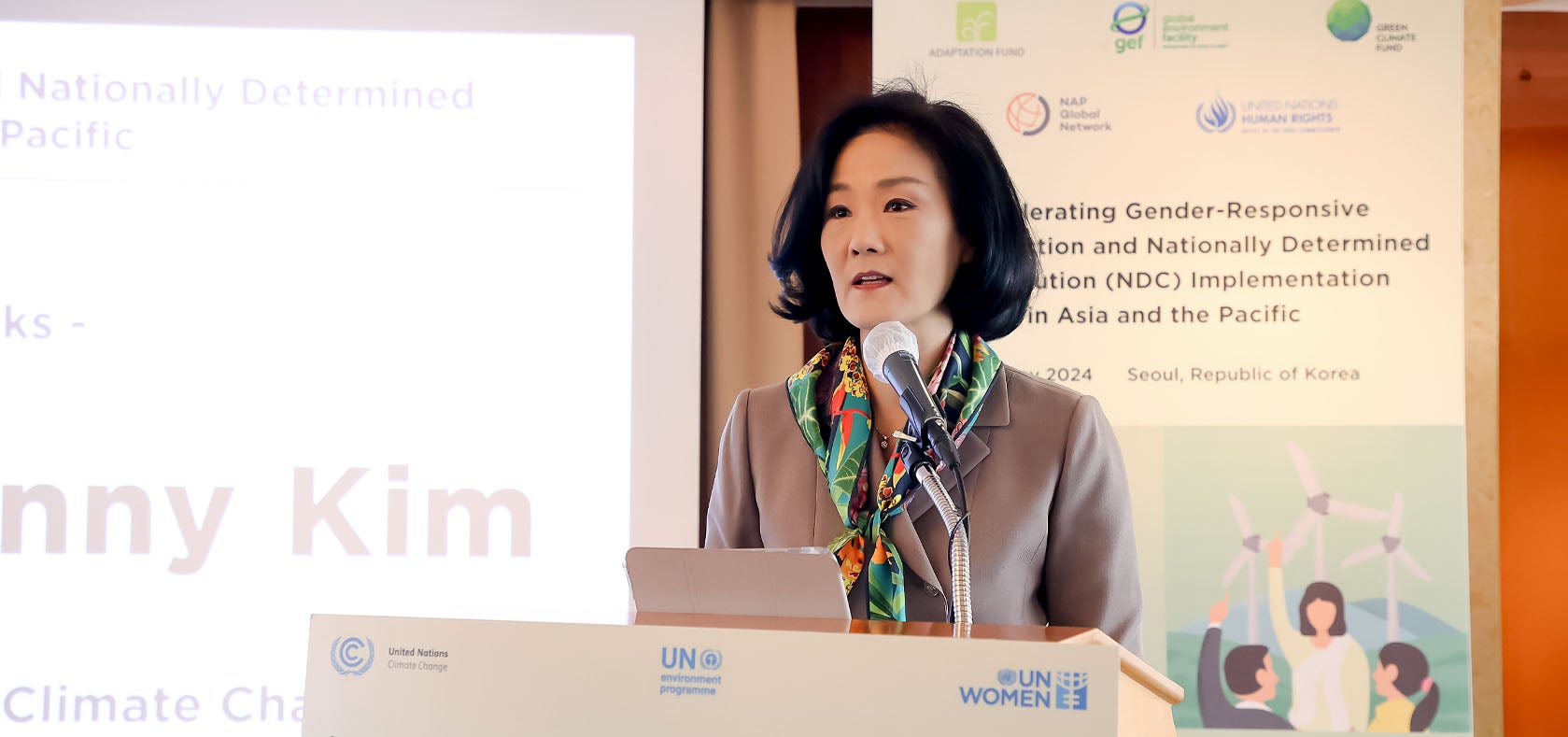
Kim Hyoeun, Deputy Director and Climate Change Ambassador of the Republic of Korea (ROK)'s Ministry of Foreign Affairs. Photo: UN Women/Kwanju Kim
“The Republic of Korea is pleased and proud to host this important event. It is important to allocate resources specifically for gender-responsive climate actions and capacity-building initiatives. Therefore, the Ministry of Finance in each government, in addition to the Ministry of Environment and Ministry of Energy and Industry, must work further to integrate gender perspectives in government budgeting and resource allocation,” said Kim Hyoeun, Deputy Director and Climate Change Ambassador of the ROK's Ministry of Foreign Affairs.
The delegates, primarily national gender and climate change focal points and decision-makers from ministries responsible for NDCs, participated in several sessions, including on human rights-based approaches for climate action; climate finance landscape; and monitoring and reporting using gender and environment statistics, among others.
Gender-responsive climate finance was highlighted throughout the workshop, which the participants defined as the key to just climate action and tackling inequalities.
“This workshop is such a timely opportunity for countries from the region to come together and reflect on gender-responsive climate action. In the next round of NDCs and NAPs, Parties must reflect their highest possible ambition and gender-responsive climate policy is integral to this. In turn, we must ensure sufficient climate finance is accessible and gender-responsive, to accelerate climate action and resilience for all,” said Fleur Newman, Action Empowerment Unit Lead at UNFCCC.
During the last day of the workshop, participants engaged in an action-planning session where they identified specific actions for gender-responsive NDC implementation in their respective roles.
“The goals of the Paris Agreement can only be achieved if we prioritize the needs of vulnerable and marginalized communities, and workshops like this, which focus on putting these priorities into action, are essential in this endeavor. We will continue working with government practitioners, NGOs, private partners and financial institutions to ensure that no one is left behind,” said Myriem Touhami Kadiri, Programme Manager of the Economy Division at UNEP.
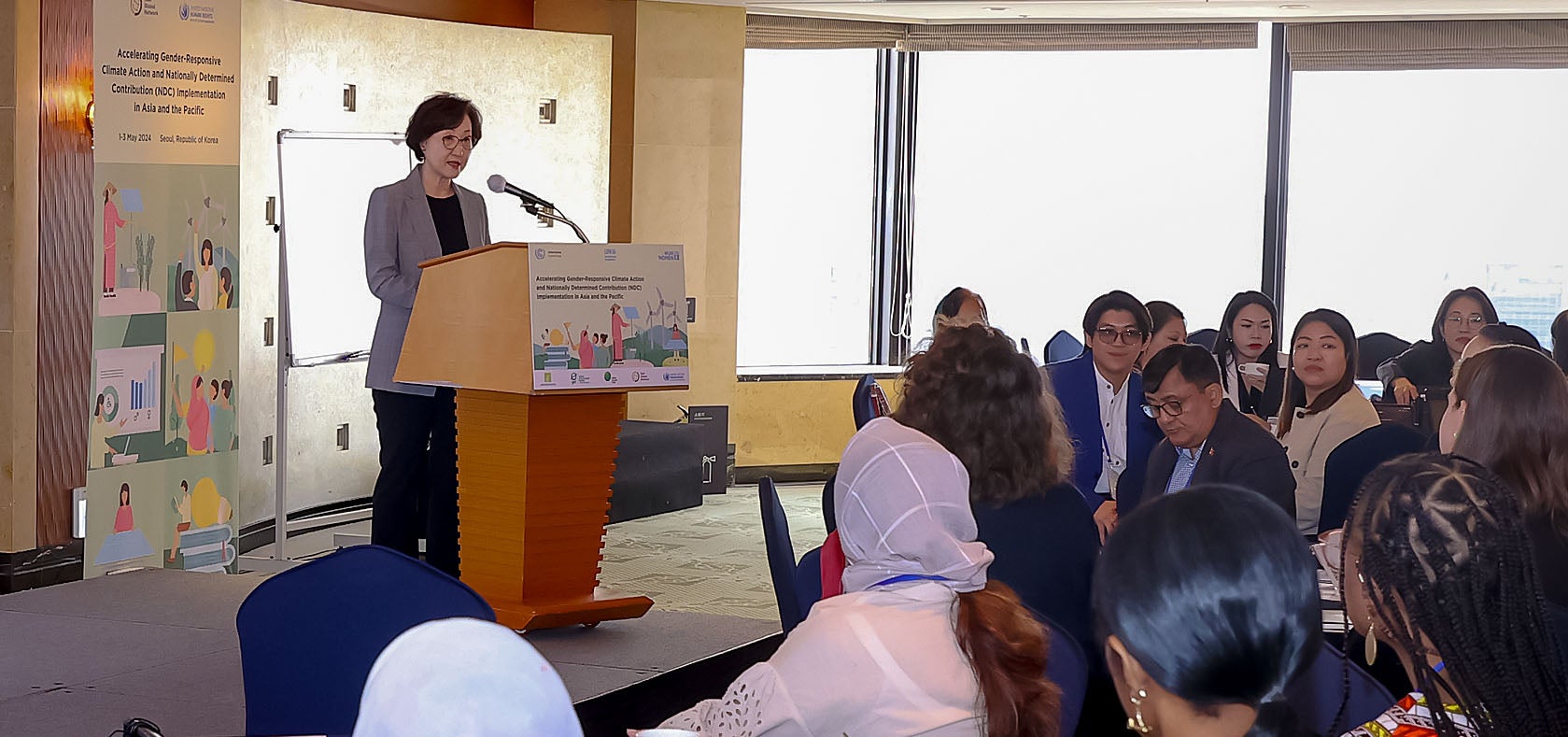
Government representatives from 10 countries across Asia and the Pacific attended a three-day training workshop ”Accelerating Gender-Responsive Climate Action and Nationally Determined Contribution (NDC) Implementation in Asia and the Pacific.” Photo: UN Women/Kwanju Kim
This effort echoes the significance of the agreed conclusions from the 68th session of the Commission on the Status of Women, emphasizing the need to strengthen institutions and financing for climate justice.
"Climate change affects women disproportionately, but they cannot be seen merely as victims. They are also active agents of adaptation and mitigation. By actively incorporating women’s experiences and knowledge into climate action, we can enhance the effectiveness and success of our climate initiatives while maximizing the return on investment,” said Dr. Jeongshim Lee, Director of the UN Women Centre of Excellence.
For more information:
Amy Reggers
Regional Programme Specialist on Gender and Climate Change
UN Women Regional Office for Asia and the Pacific
e: [ Click to reveal ]
Parimita Mohanty
Programme Management Officer for Renewable Energy
Climate Change Division, UNEP Regional Office for Asia and the Pacific
e: [ Click to reveal ]
Wiebke Bender
Gender Programme Officer
UN Framework Convention on Climate Change (UNFCCC)
e: wbender@unfccc.int
![[banner]](/sites/default/files/2024-05/coe-c841-ndc-banner-1679px.jpg)



